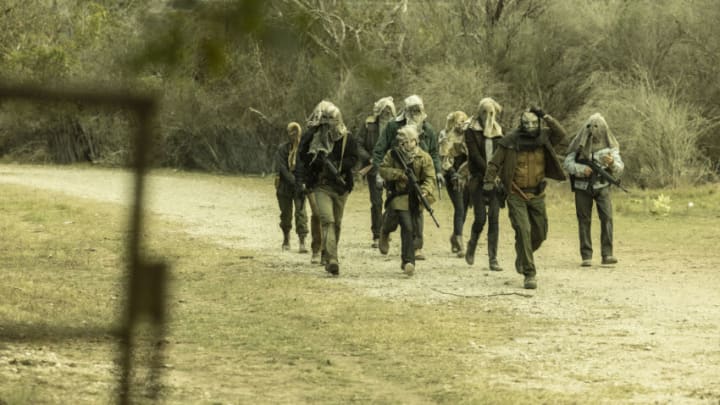
Fear the Walking Dead -Howard
We first met Howard (Omid Abtahi) in the final moments of the season six finale, “The Beginning.” This is where he met Victor Strand, who had escaped to Howard’s home inside the tower and introduced himself properly to the reserved historian after initially lying.
At that first meeting, that’s all Howard was: A quiet, mild-mannered historian, desperate to preserve as much of the history of his home state of Texas as he could. He did this hoping that, should civilization return, at least those in Texas would have a link to their past.
However, as this season began, we started to see the beginnings of a change coming over Howard. It was subtle, with him first acting as something of a receptionist, determining whether or not visitors were worthy of having an audience with Strand. As things progressed, Howard took on more duties, first, serving as Strand’s emissary, inviting Morgan to the tower. Then, following Morgan’s attempt to poison Victor, Howard began acting far more like Strand’s second-in-command, even going so far as to order the rangers around in Victor’s stead.

The transformation became complete in episode 710, “Mourning Cloak”. In that episode, with Strand “out of the office”, Howard was in charge, ordering the rangers on missions, and deciding matters of life and death. When he caught Ali attempting to shut off the beacon, Howard threw the teen off the tower’s roof, before demanding Charlie be given to him, so he could do the same to her for inspiring Ali to carry out the betrayal in the first place.
Just before his death, Howard ordered the rangers to throw several people off the tower’s roof without a second thought. Gone was the man who simply wanted to preserve Texas’ history for future generations, and in his place was a henchman, a lackey murdering people because “that’s what Strand would do”. His extended time under Strand’s tutelage caused him to adopt all of his mentor’s worst qualities until the scholar, the husband, the father, was replaced by a man willing to do anything to stay at the right-hand of his boss.
That’s what is saddest of all about Howard: We learned that, despite his mild unscrupulousness (even before the outbreak), Howard was a good man. He wanted to build a place to preserve civilization, a place his estranged wife and son could be proud of, but in the pursuit of that, and the belief Strand could be the one to lead that construction, he took a wrong turn and became the opposite of what he wanted.
